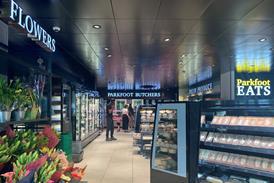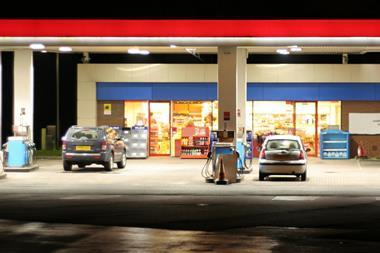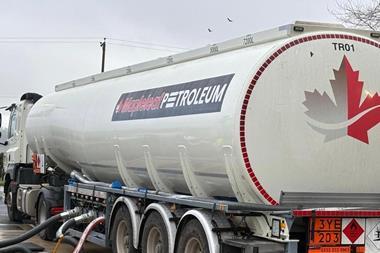
Convenience retailers, including forecourt operators, are cutting their cloth to reflect increased costs, by employing fewer staff and investing less in their businesses, according to The Local Shop Report 2025.
In its annual publication, the Association of Convenience Stores (ACS) says the industry has paid staff 300,000 fewer hours a week, and spent an annual £100m less on their sites, in response to rises in employment costs and business rates.
Also there has been a £600m predicted reduction in convenience store turnover this year to £48.8bn. And while there has been a slight increase in the number of the UK’s 50,486 convenience stores, the number of jobs they provide has fallen from 445,000 to 443,000.
While explaining that the annual publication is a snap shot of the health of the UK’s convenience stores, ACS research manager Rosie Wiggins says that there is enough evidence to show that rising costs in what has been a “challenging year”, are “starting to take their toll”.
Retailers are stocking tighter ranges with 4,580 SKUs. And those who have invested – with a total £916m spent on convenience stores over the past year – 60% bought new refrigeration, 35% shelled out on internal building maintenance, and around a third upgraded till systems, store signage and shelving.
Some 62% of this investment was self-funded, with only 5% backed by financial institutions. The remainder relied on suppliers, symbol groups and wholesalers.
With the autumn Budget weeks away, on November 26, the ACS is urging retailers to write to their MP to call for a reduction in business rates. The tax was cited by many at the launch of the report in London on Tuesday (September 2) as a major hindrance to the industry, alongside the increase in employee National Insurance contributions, and the National Living Wage.
The ACS warns of more cost increases on the horizon through the incoming business rates revaluation. This comes after the government reduced reliefs from 75% to 40% this year.
Retailers have also had to deal with the additional cost of vape recycling in their business, and most recently the impact on their turnover from the introduction of a ban on disposable vapes. Later this year, retailers that are part of a larger overall business will also be banned from providing multibuy promotions like buy-one-get-one-frees on High Fat, Salt and Sugar products.
But it was not all doom and gloom. The report predicts that the sector will have a turnover of £53.7bn by 2028. Many convenience stores have diversified into new areas to increase footfall, with 82% having bill payment services, 41% free to use cash machines, 32% offering grocery deliveries, and 12% standalone parcel lockers.
The industry has also safeguarded itself by having invested in technology in recent years. Some 79% now have electronic point of sale (EPOS), 18% have self-service checkouts, 35% in-store wifi, 35% digital advertising screens, 12% electronic shelf edge labels, and 6% power outlets/USB ports for customers.
Energy saving remains a priority with 55% of stores having LED lighting, 53% chillers on doors and 6%, solar panels.
Also encouragingly the stores remain hubs for their communities, with 27% of stores having a food bank donation point, and 80% of independent retailers engaged in some form of community activity in the past year. Also convenience operators support their customers with wheelchair access (69% of outlets), hearing aid loops (24%), and first aid/defibrillator for public use (17%).
And typically customers visit their local store 2.1 times a week, buying 2.7 items a time, with an average basket spend of £7.81.
Speaking at the launch event in Westminster, Alex Norris, minister for high streets and local growth, told the group of retailers attending “you are anchors in your community”. He said: “What you guys do is crucial. It is crucial in the hard economic sense, contributing over £10.5bn in GVA, with over 50,000 local stores across the UK, providing nearly half a million people secure, flexible jobs. You are making a huge difference to our economy.”
ACS chief executive James Lowman said. ”Despite the challenges, convenience stores are still right at the heart of communities, more relevant than ever to people’s daily lives, and making a positive difference not just through diversified products and services, but as job creators, investors and social hubs. Every community has different needs and our members’ greatest asset is being able to adapt their offer to meet those needs.”
































